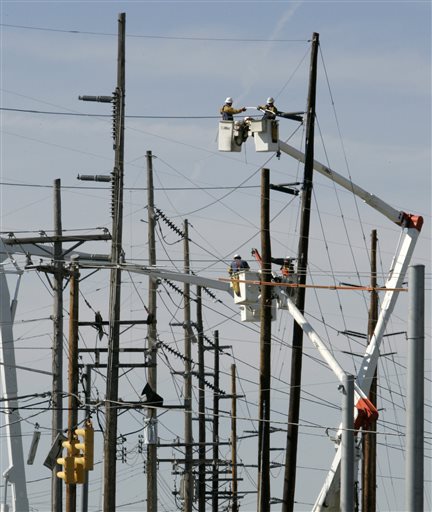WILSON RING, Associated Press
SOUTH BURLINGTON, Vt. (AP) — Clean hydro-electricity from Canada is available for use in New England if producers can find ways to bring it into the region, experts said Thursday at an annual meeting of the Renewable Energy Vermont trade group.
“There’s a lot of energy inside of Canada, carbon-free energy,” Marc Montalvo, president of Boston-based La Capra Associates, an energy consulting firm, told an audience that included Vermont’s growing renewable energy businesses.
With Canada to the north and solar- and wind-power producers in the state, Vermont, along with New Hampshire and Maine, is in the prime position to bring renewable energy to southern New England.
A number of large-scale transmission projects to move hydro and wind power through the three states to their southern neighbors are already in the works. Two projects in Vermont would each bury cables through a section of Lake Champlain and then connect to the regional power grid.
The 60-mile, 400 megawatt Green Line Vermont would begin at Plattsburgh, New York, go beneath Lake Champlain then be buried upon reaching the shore on its way to the grid in New Haven, Connecticut. Maine is considering a similar project.
A 150-mile, 1000-megawatt project by TDI New England would begin near the U.S.-Canadian border in the Vermont town of Alburgh, run down Lake Champlain to Benson where it would be buried across Vermont before connecting with the grid in Ludlow.
Another proposal, the Northern Pass project, calls for a 190-mile, 1,000 megawatt system that would bring Canadian power south through New Hampshire. The developers of that project have agreed to bury about 60 miles of the project. Some in New Hampshire have called for burying the entire line. But Carolyn O’Connor, director of external affairs for the U.S. affiliate of Hydro Quebec, said that would be significantly more expensive.
“They are trying to address, where they can, the issue of underground transmission,” O’Connor said.
New England’s energy future is not entirely dependent on importing power from elsewhere. A series of small, local sources of wind or solar power is coming to play an important role.
David O’Brien, a former commissioner of the Vermont Public Service Department, said that nationwide, between 2014 and 2023 regionally produced power would eliminate the need for new or large scale power plants.


